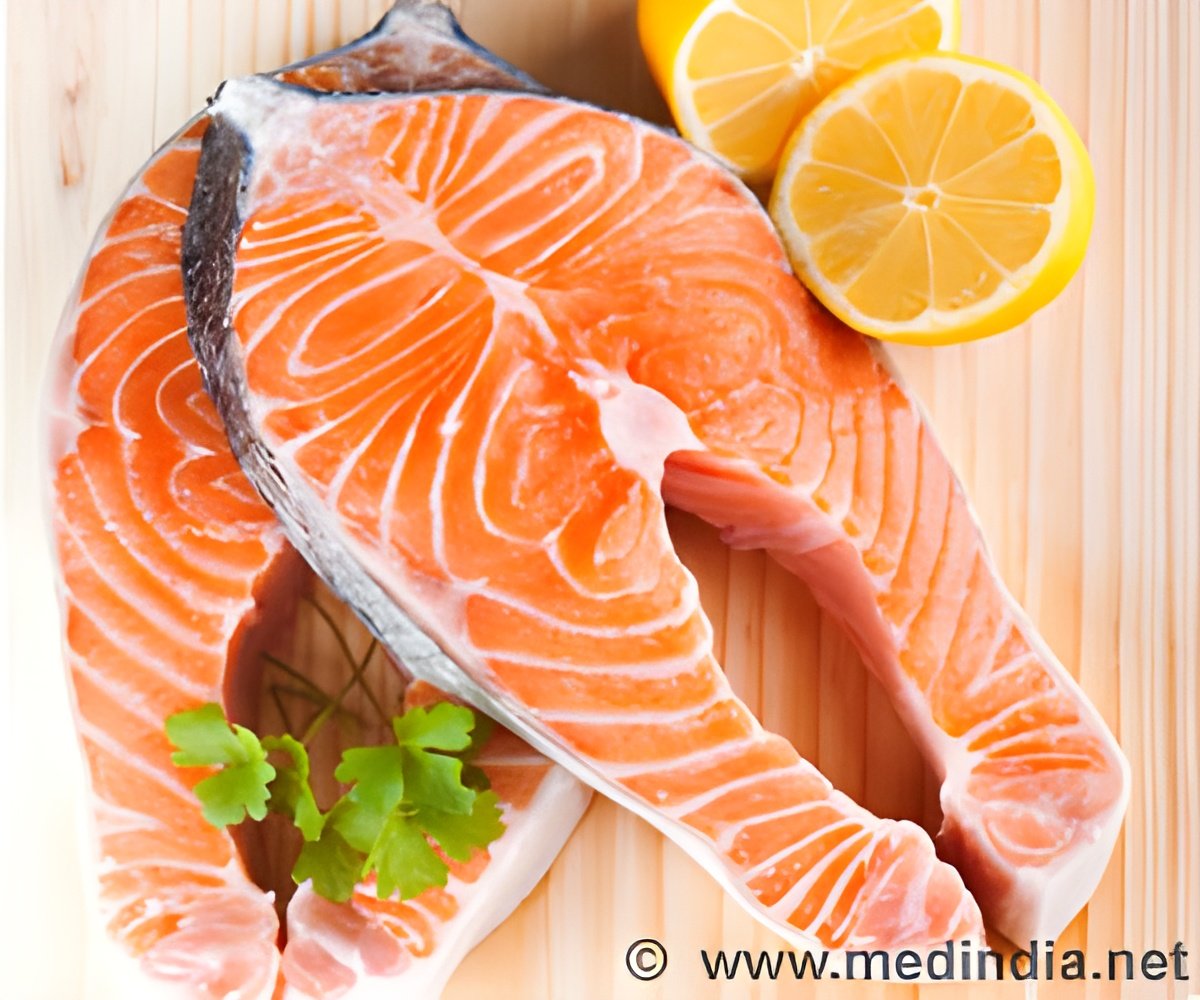Consuming omega 3 essentially through fish, or supplements containing these fatty acids can modulate lipoproteins and can decrease the risk of cardiovascular disease, reveals a new study.

‘Higher consumption of fish and omega‐3 fatty acids may protect against atherosclerosis.
’
Read More..




The research has been led by Núria Amigó, CEO of the URV spin-off Biosfer Teslab and a member of the Metabolomics Interdisciplinary Laboratory (MIL@b) - Metabolomics Platform, which was jointly created by the URV and the CIBERDEM and which is part of the Pere Virgili Health Research Institute. Xavier Correig, a professor from the Department of Electronic, Electrical and Automatic Engineering and director of the MIL@b - Metabolomics Platform, has participated in the study together with researchers from the Center for Lipid Metabolomics, Division of Preventive Medicine at the Brigham and Women's Hospital (Harvard Medical School) headed by Samia Mora. Read More..
Up to now, it had been shown that high consumption of omega-three fatty acids was associated with lower levels of triglycerides in the blood. However, it had also been related to an increase in LDL cholesterol, that is, low-density cholesterol transported by lipoproteins, also known as bad cholesterol. LDL cholesterol increases the risk of cardiovascular diseases because it can accelerate the formation of atherosclerosis, that is, the process by which the arteries harden and lose their elasticity.
However, the study has found that increased consumption of LDL cholesterol from fish is associated principally with the cholesterol transported by the largest LDL particles, which are less atherogenic, and not with an increase in the total number of LDL particles. This decrease in the number of triglycerides transported by any type of lipoprotein helps protect the individual from heart disease.
The 3 types of omega 3 fatty acids studied, namely α-linoleic acid (ALA), docosahexaenoic acid (DHA) and eicosapentaenoic acid (EPA) are present in fish and other foods and are essential to human physiology, and the study has found that they differ in their association with the risk of cardiovascular disease. It found that there was no increase in the smallest LDL lipoproteins that transport cholesterol; instead, the increase was among the largest LDL lipoproteins, which are not associated with the risk of heart disease. There was a decrease in all of the triglyceride-transporting particles and, moreover, the average size of the HDL and LDL particles increased, a phenomenon that is associated with increased protection from cardiovascular illness.
These conclusions have been obtained through mathematical modeling of the consumption of fish and omega 3 (both as a whole and of the different types ALA, DHA, and EPA) and the profile of lipoproteins. The results were obtained by Nuclear Magnetic Resonance, "which can go further than simply analyzing triglyceride and cholesterol content and can quantify the number and size of the different subtypes of plasmatic lipoprotein," explained Núria Amigó. She described how among the LDL particles that transport cholesterol, "it is the smallest that is associated with a future cardiovascular event."
Advertisement
The study analyzed a cohort from the Women's Health Study by the Brigham and Women's Hospital, affiliated to Harvard Medical School, and involved the use of Nuclear Magnetic Resonance to characterize the plasma of 26,034 women with an average age of 53 (most were between 48 and 59).
Advertisement
Source-Eurekalert















